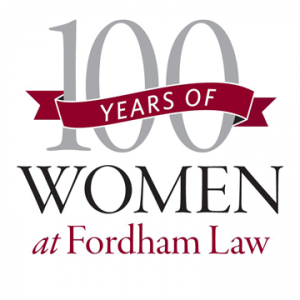 In the wake of 9/11 and Hurricane Sandy, the New York City Department of Investigation, led by Rose Gill Hearn ’88, monitored multimillion-dollar cleanup jobs to ensure the city’s tax dollars didn’t fall prey to fraud, waste, or abuse. Gill Hearn served as DOI commissioner from 2002 to 2013—the longest leadership tenure in the department’s 140-year history—initiating its corruption prevention program, vital in the wake of the aforementioned disasters, and overseeing investigations that resulted in unprecedented monetary recoveries and more than 6,500 arrests.
In the wake of 9/11 and Hurricane Sandy, the New York City Department of Investigation, led by Rose Gill Hearn ’88, monitored multimillion-dollar cleanup jobs to ensure the city’s tax dollars didn’t fall prey to fraud, waste, or abuse. Gill Hearn served as DOI commissioner from 2002 to 2013—the longest leadership tenure in the department’s 140-year history—initiating its corruption prevention program, vital in the wake of the aforementioned disasters, and overseeing investigations that resulted in unprecedented monetary recoveries and more than 6,500 arrests.
Today, more than 2,000 of the written, anti-corruption recommendations she made as commissioner remain in effect throughout dozens of city agencies.
“I’m proud of the fact we were able to do tough, measured independent investigations, uncover problems, and bring about reforms to serve the greater good moving forward,” Gill Hearn said, adding that the achievements resulted in the city hiring great leaders and responsible vendors on everything from social service to construction projects. “Everyone knew that during my tenure we would proceed without fear or favor, and be fair to both sides.”
Following Gill Hearn’s time at DOI, then-Mayor Michael Bloomberg appointed her as chair of the New York City Campaign Finance Board. Gill Hearn also helped create Columbia Law School’s Center for the Advancement of Public Integrity in 2013, and continues to chair its advisory board.
Currently, Gill Hearn is a principal in municipal integrity for Bloomberg Associates, where she spearheads projects geared toward increasing government transparency in U.S. cities, such as Nashville, Kansas City, and Detroit, and international metropolises, such as Mexico City, Bogota, Rio de Janeiro, and Milan. Transparency measures include making contracts accessible online, eliminating licensing procedures, establishing corruption hotlines, and synthesizing contract and procurement procedures.
“Not every city has a DOI, whistleblower protections, or a corruption hotline,” Gill Hearn noted. “Most mayors—certainly the ones we work with—want as much transparency and as many businesses vying for contracts as possible, transparent budget procedures, and outlets for people to report issues.”
Gill Hearn first took an interest in criminal and constitutional law, as well as ethics, at Fordham Law, also the alma mater of her father, the late James F. Gill ’56. During her law school years, she interned with the Manhattan District Attorney’s Office and the Hon. John F. Keenan ’54 of the U.S. District Court for the Southern District of New York. She also served as research assistant on Professor Michael M. Martin’s book, Morgan’s Basic Problems of Evidence, which she said gave her an advantage early in her career.
After leaving Fordham Law, she served 10 years as a federal prosecutor with the U.S. Attorney’s Office for the Southern District of New York, including the final four years as deputy chief of the Criminal Division. She described her two children, James and Gillian, as “U.S. Attorney babies,” and noted that her subsequent years as boss of DOI allowed her time to make breakfast and do school drop-offs in the mornings, attend class trips and parent-teacher conferences, and host birthday parties.
“I am a mother first and foremost,” Gill Hearn said. “I have enjoyed wonderful jobs at the U.S. Attorney’s Office, the DOI, and Bloomberg Associates. They’re all a distant second to the fact I am a mother.”
In addition, Gill Hearn has taken pride professionally in her ability to hire many women at her various stops. Throughout her career, she noted, she was often the only woman sitting in the room, or at least frequently in the minority. She credited trailblazers such as the Hon. Loretta A. Preska ’73 of the U.S. District Court for the Southern District of New York, Mary Jo White at the U.S. Attorney’s Office, and Janet Reno, the first woman U.S. attorney general, for lighting a path to follow.
“People have helped me immeasurably, and in turn it’s been a real pleasure to hire women, including Fordham Law alumni, and attach them to my work and watch them grow and succeed,” she said.
Gill Hearn has served on the Fordham Law Alumni Association and advisory board for the Urban Law Center for many years, taught Trial Advocacy courses at Fordham, and employed the Law School’s students to research municipal law issues in the European Union.
“There’s a special connection we have as a community because so many of us came from New York, went to Fordham, and continued to work in New York,” Gill Hearn observed, hailing the Law School’s Network Effect as its “secret sauce.”
During the 2018–2019 school year, Fordham Law School is celebrating 100 Years of Women.

